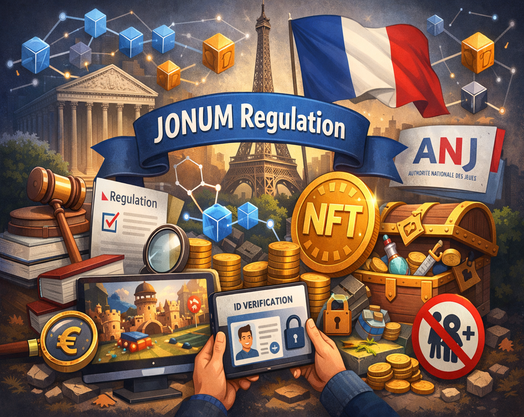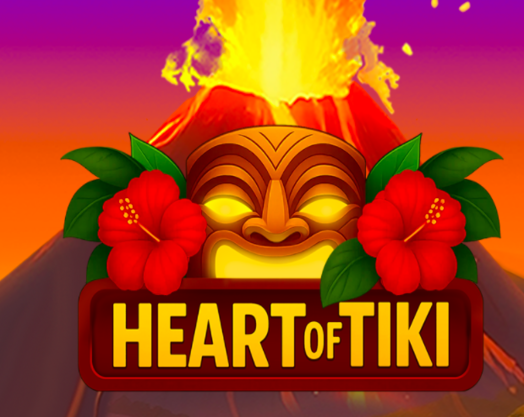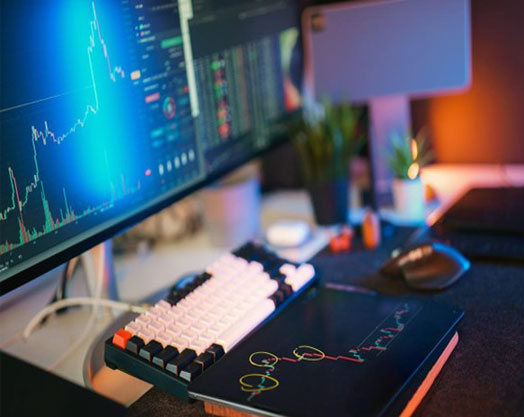Cronos
Price
$0.07 0.44%
The History of Cronos
Since its inception, Cronos has emerged as a groundbreaking force in blockchain technology, rapidly gaining traction as a widely adopted platform. With its innovative approach, Cronos is transforming the way decentralized applications and digital transactions operate, offering a new level of interoperability and scalability.
At its core, Cronos uses the Cosmos SDK to enable a high level of scalability, while also incorporating Ethereum-compatible smart contracts through the EVM (Ethereum Virtual Machine). This combination makes Cronos a highly versatile blockchain, attracting both developers and users looking for a solution to the challenges faced by existing blockchain networks, such as high gas fees and slow transaction times.
In its early stages, Cronos primarily appealed to the Crypto.com community, leveraging its existing ecosystem of users and services. However, as the network grew, it began to attract a broader range of developers and DeFi (decentralized finance) projects seeking to take advantage of its low transaction costs and high throughput. In 2021, the Cronos network saw substantial growth in its ecosystem, with an increasing number of dApps and DeFi protocols migrating to the platform.
By 2022, Cronos had cemented itself as a major player in the blockchain space, surpassing significant milestones in terms of developer activity, partnerships, and total value locked (TVL) in DeFi protocols. It became a preferred network for decentralized finance solutions, offering users seamless access to cross-chain transactions, lower fees, and fast settlement times.
As Cronos continues to expand, it is not just a blockchain platform, but a growing ecosystem that plays a pivotal role in the evolving world of decentralized finance, NFTs, and Web3 technologies. The future of Cronos seems promising, with increasing institutional interest and ongoing improvements to its infrastructure aimed at achieving greater scalability, security, and user experience.
Looking ahead, Cronos is well-positioned to be at the forefront of blockchain innovation, continuing to attract developers, users, and projects seeking a decentralized and scalable solution for the future of finance and beyond.
More Hot Cronos Casinos
Discover the ultimate in online gambling at our leading Cronos-friendly casinos. These top-tier gaming platforms harness the power of Cronos, offering you a smooth, secure, and efficient gaming.
The Popularity of Cronos
The popularity of Cronos has seen significant growth since its inception, driven by its innovative approach to blockchain technology. Launched in 2020, Cronos aims to address the scalability and interoperability issues faced by many existing blockchain networks. Built on the Cosmos SDK and incorporating the Ethereum Virtual Machine (EVM), Cronos facilitates seamless interaction between the Ethereum and Cosmos ecosystems, allowing developers to deploy decentralized applications (dApps) that benefit from both high throughput and low transaction costs. This design positions Cronos as a compelling solution for users and developers seeking to optimize performance while maintaining decentralization.
A key factor in Cronos’ rising popularity is its ability to offer high scalability and low transaction fees. Traditional blockchains, such as Ethereum, have faced challenges related to network congestion and high gas fees, especially during periods of increased activity. Cronos addresses these issues by providing a more efficient blockchain, capable of processing thousands of transactions per second without compromising security or decentralization. As a result, Cronos has attracted a wide range of decentralized finance (DeFi) projects, which rely on fast and cost-effective transactions to thrive in the competitive blockchain space.
In addition to its technical features, Cronos has benefited from strong partnerships and integrations with established players in the cryptocurrency ecosystem. The network’s connection to Crypto.com, a global cryptocurrency exchange with millions of users, has significantly contributed to Cronos’ visibility and adoption. This relationship has provided Cronos with a built-in user base and access to a broad range of financial products, further cementing its position as a leading blockchain for decentralized applications. Furthermore, Cronos’ focus on supporting cross-chain functionality has made it an attractive platform for developers seeking interoperability between different blockchain networks.
Looking ahead, Cronos’ popularity is likely to continue growing as the demand for efficient, scalable blockchain solutions increases. The ongoing development of the Cronos ecosystem, including enhanced security features and support for a wider variety of dApps, positions it well for future success. As more projects migrate to the Cronos network and institutional interest in decentralized finance rises, Cronos is poised to play a significant role in shaping the future of blockchain technology and its applications across industries.
News and Articles for Cronos
Learn everything for Cronos. Follow our blog!


Nov 12, 2025
UKGC Presses Government to Address Crypto Gambling
How Has Cronos Grown during the Years?
Cronos has experienced rapid growth since its launch in 2020, evolving from a new entrant in the blockchain space to a leading platform known for its scalability, low fees, and strong ecosystem. Initially designed to bridge the gap between Ethereum and Cosmos, Cronos has leveraged its innovative architecture to provide an efficient platform for decentralized applications (dApps), decentralized finance (DeFi), and other blockchain-based solutions. Its growth is largely driven by its ability to attract developers and users by offering a high-performance blockchain that addresses common issues faced by older networks, such as slow transaction speeds and high costs. Over the years, Cronos has attracted a diverse range of projects, partnerships, and users, becoming a key player in the blockchain and cryptocurrency ecosystem.
- Launch and Initial Adoption (2020): Cronos was launched with the goal of offering scalability and interoperability between Ethereum and Cosmos ecosystems, quickly gaining attention from the Crypto.com community.
- Integration of Ethereum Virtual Machine (EVM) (2020): The integration of EVM allowed Cronos to support Ethereum-compatible smart contracts, enabling developers to port their existing Ethereum-based applications to Cronos without modification.
- Significant Ecosystem Growth (2021): In 2021, Cronos saw an influx of decentralized finance (DeFi) applications, dApps, and decentralized exchanges (DEXs) joining the network. The platform's ability to offer lower fees and faster transaction speeds compared to Ethereum made it a popular choice.
- Partnership with Crypto.com (2021): Cronos benefited from its association with Crypto.com, one of the largest cryptocurrency exchanges globally. This partnership provided Cronos with a built-in user base, enhancing its adoption among Crypto.com’s millions of users.
- Expansion into NFTs (2021-2022): As the NFT market gained momentum, Cronos expanded its support for non-fungible tokens (NFTs), attracting NFT projects and creators to build on its blockchain due to its scalability and low costs.
- Cross-Chain Functionality (2022): Cronos introduced cross-chain capabilities, enabling users and developers to interact with assets and dApps across different blockchain networks. This feature enhanced the network’s versatility and appeal.
- Institutional and Developer Interest (2022-Present): Cronos has seen increasing institutional adoption and interest from developers seeking an efficient and scalable solution for decentralized applications. The network continues to grow through both community-driven development and partnerships with industry leaders.
- Continuous Development and Upgrades (2023 and Beyond): Cronos continues to expand its functionality, improve its infrastructure, and develop new features to support emerging blockchain use cases. The ongoing improvements to scalability, security, and user experience have made it a strong contender for the future of decentralized finance and blockchain technology.
| Year | Price (USD) | % Change |
|---|---|---|
| 2020 | 0.05 | N/A |
| 2021 | 0.90 | +1700% |
| 2022 | 0.50 | -44.4% |
| 2023 | 0.60 | +20% |
As Cronos continues to develop, its growth trajectory highlights its adaptability and lasting appeal. Despite market volatility, Cronos has shown notable long-term value appreciation, solidifying its role as a transformative force in the blockchain and digital asset space.
What are the Best Platforms to Trade with Cronos?
Several prominent platforms provide seamless trading opportunities for Cronos (CRO), catering to both beginner and advanced users. The most notable of these is Crypto.com, the native platform of Cronos, which offers a user-friendly interface and a wide range of features including spot trading, staking, and access to decentralized finance (DeFi) applications on the Cronos network. Binance, one of the largest global cryptocurrency exchanges, also supports Cronos trading, offering both spot and futures markets with high liquidity and low trading fees. KuCoin is another popular platform that allows users to trade Cronos with a variety of trading pairs and offers advanced trading tools for more experienced traders. Additionally, decentralized exchanges (DEXs) such as VVS Finance and CronaSwap, which are built on the Cronos network, enable users to trade directly from their wallets, providing access to Cronos-based tokens and DeFi projects in a secure and decentralized manner. These platforms offer a combination of ease of use, liquidity, and access to the Cronos ecosystem, making them ideal choices for trading CRO.
| Crypto App | Note |
|---|---|
| Binance | Ideal for comprehensive trading. |
| Kraken | Excellent choice for low fees and experienced traders. |
| Coinbase | Beginner-friendly platform. |
| Crypto.com | Exceptional mobile app experience. |
| Cash App | Well-suited for Cronos trading. |
How to Open an Account in Binance and Find my Cronos Address?
Step01
Visit the Binance website and click on “Register”
Visit the Binance website (www.binance.com) and click on the “Register” button to begin creating a new account.
Step02
Fill in your email and create a password
Fill in the required information, including your email address and a strong password. Ensure that you meet the password requirements and consider enabling two-factor authentication (2FA) for added security.
Step03
Agree to the terms of use and complete verification
Agree to the terms of use and complete any additional verification steps that may be required, such as identity verification, depending on your location and the verification level you desire.
Step04
Navigate to the “Wallet” or “Funds” section
On the Binance dashboard, navigate to the “Wallet” or “Funds” section. This section may vary slightly depending on your Binance interface version.
Step05
Find the Cronos wallet
In the “Wallet” or “Funds” section, search for the Cronos wallet. It may be listed as “CRO”.
Step06
Click on Deposit
Click on the “Deposit” button next to the Cronos wallet. This will take you to the Cronos deposit page.
Step07
Locate your Cronos address
On the Cronos deposit page, you will find your unique Cronos address. It will be a long string of alphanumeric characters. You can also use the provided QR code for convenient scanning.
What Casino Games Can I Play with Cronos?
When using Cronos at online casinos, players can enjoy a wide variety of games, taking advantage of the network's fast transactions and low fees. Popular options typically include classic casino games like slots, blackjack, and roulette, as well as more advanced games such as poker and craps. Many Cronos-friendly casinos also offer live dealer games, providing a more immersive experience with real-time interaction. In addition, players can explore dice games, lottery-style games, and virtual sports, all of which benefit from the low-cost, fast transaction capabilities of the Cronos network. As decentralized finance (DeFi) platforms and blockchain technology continue to evolve, some casinos are also integrating provably fair games, ensuring a transparent and trustworthy gaming experience. Cronos offers a seamless and secure way to engage with these diverse gaming options, all while enjoying the advantages of a fast and efficient blockchain.
| Crypto currency | Sym | Casino | Slots | Roulette | Baccarat | Poker | Blackjack | Live casino | eSports | Sports |
|
|
cronos-cro |
Interesting Facts About Cronos
Cronos is a blockchain network that has rapidly gained attention for its unique features and growing ecosystem. Launched in 2020 by Crypto.com, Cronos aims to bridge the gap between Ethereum and Cosmos, providing scalability, low transaction fees, and high-speed performance. It leverages the Cosmos SDK and Ethereum Virtual Machine (EVM) compatibility to support decentralized applications (dApps), decentralized finance (DeFi), and non-fungible tokens (NFTs). Cronos has attracted a wide range of developers due to its robust infrastructure, which enables cross-chain interoperability and low-cost transactions. Additionally, the network’s native token, CRO, is used for various purposes including staking, governance, and transactions within the ecosystem. The rise of Cronos reflects its potential to disrupt the blockchain space, offering an efficient and scalable platform for decentralized applications.
| Fact | Details |
|---|---|
| Launch Date | November 2020 |
| Built on | Cosmos SDK and Ethereum Virtual Machine (EVM) |
| Native Token | CRO (Crypto.com Coin), used for staking, governance, and transactions |
| Transaction Speed | Capable of processing thousands of transactions per second (TPS) with low latency |
| Scalability | Designed to offer high scalability without compromising security or decentralization |
| DeFi Integration | Hosts numerous DeFi projects and decentralized exchanges (DEXs), offering low fees and fast settlement |
| Cross-Chain Compatibility | Supports interoperability with both the Cosmos and Ethereum ecosystems |
| NFT Support | Provides a platform for NFT creation, buying, and selling, with low transaction costs |
| Partnerships | Close ties with Crypto.com, increasing adoption among users of the exchange platform |
| Ecosystem Growth | Expanding ecosystem with over 100 dApps and DeFi projects, showcasing rapid adoption |
CasinoLandia's Conclusion About Cronos
In conclusion, Cronos has proven itself as a transformative blockchain network, offering exceptional scalability, low transaction fees, and seamless interoperability with both Ethereum and Cosmos ecosystems. Its rapid adoption within the decentralized finance (DeFi) sector, alongside its growing list of decentralized applications (dApps) and NFT projects, highlights its potential as a key player in the blockchain space. As the network continues to evolve, Cronos is positioned to offer users a secure, fast, and cost-efficient platform for a wide range of blockchain-based activities, including online gambling. With its robust infrastructure and strong backing from Crypto.com, Cronos is well on its way to becoming an integral part of the digital asset ecosystem, providing a solid foundation for both developers and users seeking innovative solutions in the world of decentralized applications and financial services.


Author
Jessica Bozukova | Senior Content Writer



















